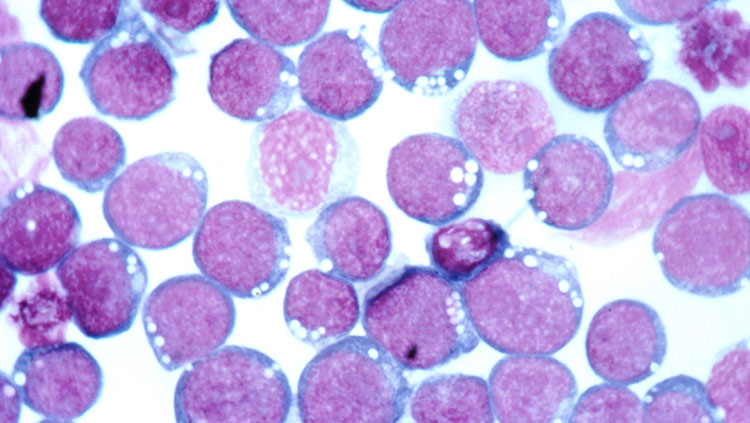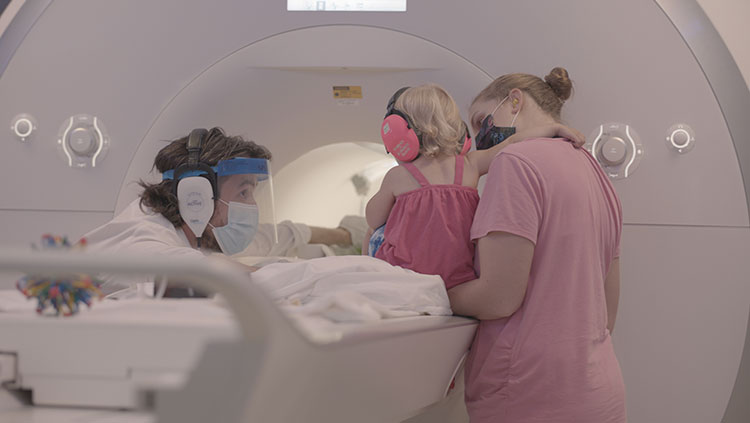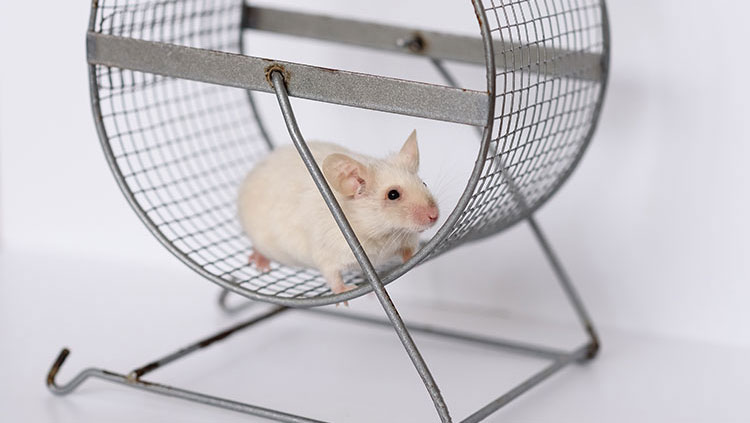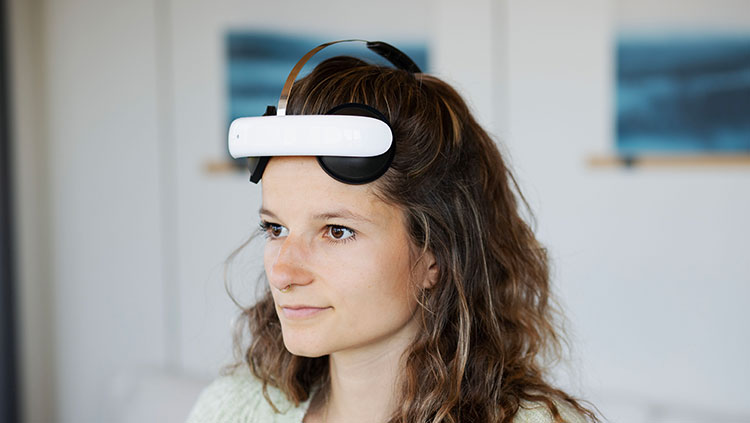ICYMI: Spinal Cord Implant Helps Paralyzed People Walk Again
- Published21 Mar 2022
- Author Tristan Rivera
- Source BrainFacts/SfN
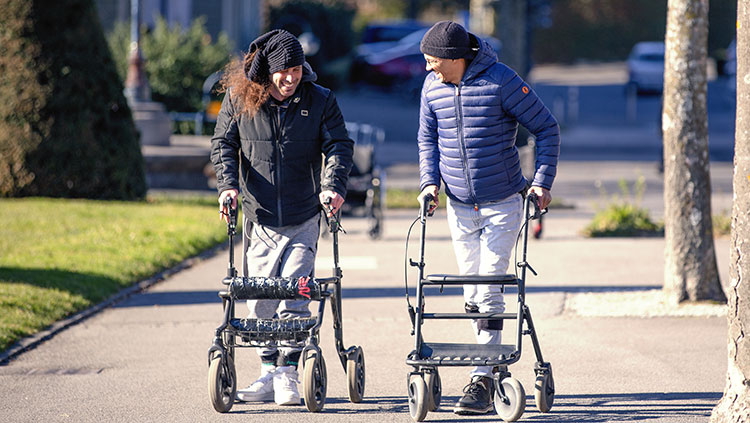
Electrically stimulating the spinal cord helped three people with spinal cord injuries and lower body paralysis move again, researchers reported February 7 in Nature Medicine. Using magnetic resonance imaging and computed tomography to map the spinal cords of 15 healthy volunteers and 12 deceased individuals, the team had created a model of an average spinal cord. The model guided electrode placement in three test participants. The implants delivered electrical stimulation to a large swath of the spinal cord, controlling trunk and leg movements. The researchers determined the precise patterns of stimulation needed for various movements. Using a clicker hooked up to a tablet, participants selected their desired stimulation and performed various activities like walking, pedaling a bicycle, and squatting — all with as little as a day’s worth of training.
Big picture: Depending on location and severity, a spinal cord injury can result in varying degrees of paralysis and sensation loss. Earlier research showed spinal cord stimulation could help recover movement, but the limited recovery involved months of intense rehabilitation. The new study shows the technology has the potential to be more precise, personalized, and faster-acting. While the participants in this study sustained spinal cord injuries between one and nine years ago, the researchers say they next plan to focus on people with more recent spinal cord injuries and hope to simplify the technology so users could control it with a smartphone.
Read more: Stimulating spinal cord helps paralysed people to walk again. Nature
More Top Stories
- A person died unexpectedly during an EEG — but his brain activity continued. BBC
- Scientists discover a group of neurons that respond to singing. New Scientist
- Brain implants enabled blind people to see, but when the company collapsed, the technology became obsolete. IEEE Spectrum
- Researchers identify gut microbes linked to depression. Science
- Scientists turned on mice’s brain cells using ultrasound. STAT
- Mental speed increases in our 20s and stays high until 60s. New Scientist
- Researchers closed a Venus flytrap with an electronic device that mimics a neuron. Scientific American
- A map of pain neurons could help researchers develop better pain treatments. New Scientist
- Selenium boosts the production of cells that give rise to new neurons. Science
CONTENT PROVIDED BY
BrainFacts/SfN
What to Read Next
Also In Neuroscience in the News
Trending
Popular articles on BrainFacts.org



